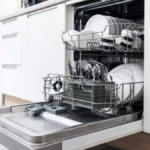Electric Toothbrushes: Are They Worth It?
Brushing your teeth is a daily habit, but the debate between manual and electric toothbrushes continues. Many wonder whether investing in an electric toothbrush is truly worth it. While electric toothbrushes promise better plaque removal and improved oral health, they also come with added costs and maintenance. In this blog, we’ll explore the pros and cons of electric toothbrushes, the different types available, and whether they are the right choice for you.
How Electric Toothbrushes Work
Unlike manual toothbrushes that rely solely on hand movement, electric toothbrushes use battery-powered or rechargeable motors to create rapid movements of the bristles. These movements fall into two main categories:
- Oscillating-Rotating: The bristles rotate back and forth in small circular motions.
- Sonic & Ultrasonic: These vibrate at high speeds, creating fluid movement that helps clean between teeth more effectively.
This automated action reduces the effort needed for effective brushing and enhances plaque removal.
Benefits of Electric Toothbrushes
1. Superior Plaque Removal
Studies show that electric toothbrushes, especially oscillating-rotating ones, remove more plaque than manual brushes, reducing the risk of cavities and gum disease.
2. Easier for Those with Limited Mobility
For individuals with arthritis, wrist pain, or motor impairments, electric toothbrushes provide an effortless brushing experience.
3. Built-in Timers for Effective Cleaning
Most electric toothbrushes come with a two-minute timer, ensuring users brush for the dentist-recommended time. Some also include quad-pacer timers, prompting users to spend equal time on all four sections of the mouth.
4. Gentler on Gums
Many electric toothbrushes include pressure sensors that prevent excessive force, reducing gum damage compared to aggressive manual brushing.
5. Encourages Better Oral Hygiene for Kids
Children often find electric toothbrushes more engaging, making them more likely to maintain good brushing habits.
6. Advanced Features for Personalized Cleaning
Some models come with multiple modes like whitening, gum care, and deep clean, catering to different oral needs.
Downsides of Electric Toothbrushes
1. Costlier Than Manual Brushes
Electric toothbrushes are significantly more expensive than manual ones, with prices ranging from ₹500 to ₹10,000 in India. Replacement brush heads also add to long-term costs.
2. Requires Charging or Battery Replacement
Rechargeable models need regular charging, while battery-operated ones require frequent replacements, making them less convenient than manual toothbrushes.
3. Bulkier and Less Travel-Friendly
Electric toothbrushes are heavier and require a charger or spare batteries, making them less ideal for frequent travelers.
4. Potential Overuse
Some users find the vibrations uncomfortable, and excessive use of powerful modes may lead to enamel wear over time.
Types of Electric Toothbrushes
- Battery-Operated: Affordable but less powerful, requiring AA batteries for operation.
- Rechargeable (Oscillating-Rotating): Common in premium brands like Oral-B, providing efficient plaque removal.
- Sonic & Ultrasonic: Brands like Philips Sonicare use high-speed vibrations for deeper cleaning.
Are Electric Toothbrushes Worth It? Who Should Use One?
Recommended for:
- People prone to plaque buildup or gum disease.
- Those with braces, dental implants, or orthodontic appliances.
- Individuals with mobility issues or arthritis.
- Kids who need motivation for brushing regularly.
May Not Be Necessary for:
- Individuals with excellent oral hygiene using manual brushes effectively.
- Those unwilling to spend on replacements and maintenance.
Conclusion
Electric toothbrushes provide numerous benefits, from better plaque removal to built-in timers for optimized brushing. However, their added cost and maintenance may not be ideal for everyone. If you struggle with proper brushing techniques, have dental issues, or seek convenience, an electric toothbrush could be a game-changer. Otherwise, a good-quality manual brush, when used correctly, can still maintain excellent oral hygiene. Choose based on your needs, budget, and comfort!




Leave a Reply
Want to join the discussion?Feel free to contribute!